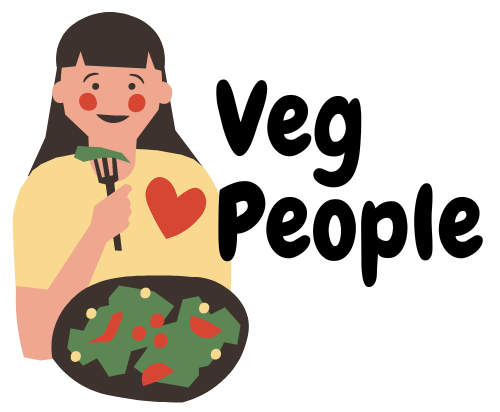Whether you’re thinking about cutting back on your meat consumption or giving it up altogether, the advantages are apparent: a lower risk of disease and better health and well-being. Mainly, consuming less meat lowers the risk of causing more damage to your health. Meat frequently contains high levels of saturated fat and cholesterol, significantly affecting poor heart health. Additionally, processed meats like bacon, sausage, and deli meat with a healthy weight frequently contain too much sodium. Conversely, skinless poultry, fish, and lean meats can all be excellent protein sources. It requires research to determine how to balance these healthy eating benefits and drawbacks. Let’s define some words first. A vegan diet is entirely composed of plants. It excludes foods derived from animals, such as meat, fish, dairy products, and eggs. In addition to eating a plant-based diet, vegetarians may also consume dairy and eggs.
The benefits of a balanced diet include improved happiness and heart health.

A nutritious diet has several advantages, such as strengthening bones, defending the heart, preventing sickness, and elevating mood. All major food groups, including lean proteins, whole grains, healthy fats, dairy foods, and colorful fruits and vegetables, are typically represented in a healthy diet by nutrient-dense foods. Trans fats, sugary foods, added salt, and sugar-containing meals should be swapped out for more nutrient-dense alternatives as part of healthy eating practices. This article covers the top health benefits of a healthy diet and the supporting data.
Cardiac health
High blood pressure, or hypertension, is an increasing health concern in the United States. The condition can result from an attack on the heart, cardiac failure, or a stroke. With lifestyle modifications, such as increasing physical exercise and eating healthily, it may be feasible to prevent up to 80% of early heart disease and stroke diagnoses. People’s diets can lower their blood pressure and support the health of their hearts.
Reduced risk of cancer
By preventing cell damage, consuming foods rich in antioxidants can help people lower their cancer risk. Antioxidants assist in the removal of free radicals from the body, which reduces the possibility of cancer, while their presence increases the danger of the disease. Beta carotene, lycopene, and vitamins A, C, and E are just a few phytochemicals found in fruits, vegetables, nuts, and legumes and function as antioxidants. Antioxidant-rich foods include: berries like blueberries and lingonberries, leafy, dark greens.
Higher mood
Some data point to a close connection between diet and mood. In 2016, researchers discovered that individuals with obesity who are otherwise healthy might have more significant symptoms of weariness and sadness while following diets high in glycemic load. According to recent studies, a person’s mood may be impacted by nutrition if it alters immune function, blood sugar levels, and gut microbiota. Many refined carbs, including those in soft drinks, cakes, processed foods, white bread, and biscuits, are part of a diet with a high glycemic load. The glycemic loads of vegetables, whole fruit, and whole grains are lower. The study’s findings suggest that healthier diets, including the Mediterranean diet, may be associated with improved mental health. The converse is true for diets that include a lot of processed, high-fat, and red meat. It is significant to note that the researchers emphasized the need for additional investigation into food’s mechanisms to mental health. Individuals may find it helpful to speak with a doctor or mental health expert if they believe they are experiencing depressive symptoms.
Better intestinal health
Natural bacteria that are abundant in the colon play crucial roles. Additionally, certain bacteria strains generate Trusted SourceK and B, which are suitable for the gut. They might also aid in the battle against dangerous viruses and germs. Consuming a diet rich in fiber, fruit and vegetables may reduce intestinal inflammation. Prebiotics and probiotics may be found in a diet high in fiber vegetables, fruits, legumes, and whole grains, which can support the growth of healthy bacteria in the colon. The probiotics in these fermented meals are plentiful.
Enhanced memory

A balanced diet may support mental and cognitive wellness. But a more thorough investigation is required. A 2015 study on healthy foods uncovered minerals and meals protecting against dementia and cognitive decline. The following was advantageous, according to the researchers: The Mediterranean diet, among others, has several of these nutrients.
Green, lean, and protein
Whatever diet you select, remember that eliminating meat doesn’t necessarily mean removing protein. Numerous foods can meet this requirement, including tofu, quinoa, mushrooms, lentils, chickpeas, and most beans and legumes. And did you know that there are a lot of excellent plant-based protein sources? That’s correct; a variety of foods that are high in protein include artichokes, asparagus, broccoli, Brussels sprouts, collards, corn, potatoes, peppers, spinach, sweet potatoes, and turnip greens. In actuality, every plant we consume contains some form of protein. So it’s possible that you can obtain adequate protein without meat to lose weight.
Not every plant-based diet is wholesome.
The French fry diet, you know! Just be careful not to substitute many highly processed meat alternatives or “vegan junk food” for meat. The secret is adding high-quality, nutrient-dense plant-based foods. A recent study found that consuming high-quality plant foods (such as fruits, vegetables, whole grains, and nuts) decreased the risk of dying from cardiovascular diseases more than consuming mostly lower-quality plant foods. The researchers concluded that increasing the number of good plant foods you eat as an adult can help lower your risk, even if you’ve had a bad diet for half your life.
Making the change
Nowadays, moving toward plants is simpler than ever. Start by looking for some delectable vegetarian dishes that are simple to make. Select flavors and ingredients that your family will appreciate. Try having a vegetarian meal once a week, then add more days as you grow accustomed to it. There’s a good chance you’ll become used to it. Your waistline and heart health may adjust to it as well. Happy eating.
What impact does nutritional malnutrition have on hair?
Many people desire thick, healthy hair, particularly as they age. However, various factors, including age, general health, genetics, environmental exposure, drugs, and diet, affect how quickly it develops and is healthy. Even while you have no control over some elements, such as age and heredity, your diet is probably one you have greater control over. The hair follicle’s growth cycle and cellular turnover are significantly influenced by vitamins and minerals obtained from food. Hair loss can result from eating a diet deficient in specific nutrients. Studies have linked hair loss to nutrient deficits, including those in biotin, riboflavin, iron, and vitamins B12 and D.If you are balding due to inadequate nutrition, eating a balanced diet rich in specific vitamins and minerals may help encourage hair growth.

